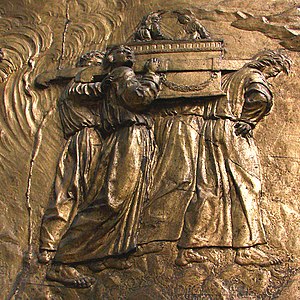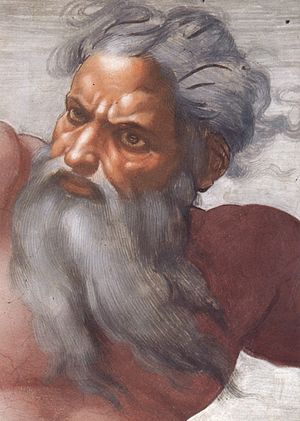 Image via WikipediaEach sacred tradition has some way of connecting what we consider to
be the objective, or external world, to the subjective, or internal
world. Even those which state that it is all one in God or in Mind or
the like.
Image via WikipediaEach sacred tradition has some way of connecting what we consider to
be the objective, or external world, to the subjective, or internal
world. Even those which state that it is all one in God or in Mind or
the like.In Nichiren Buddhism, this is the Gohonzon, a scroll with sacred writing embodying the Lotus Sutra. One is to chant to the scroll, which is a physical representation of the Buddha-nature in the person chanting. The outer representation of the altar and scroll, recalling the Ceremony in the Air, is supposed to merge with the inner landscape of those performing this ritual.
In Shin Buddhism and in the larger realm of Pure Land Buddhism, the same can kind of association can be applied to its ceremonies and to the imagery of Amitabha Buddha and the Pure Land.
In Judaism, this externality was the Ark of the Covenant carrying the tablets of Moses as well as the tent in which it (and the Spirit of God) resided. It was also associated with the Temple in Jerusalem, and after the last demolition of the temple building, it was associated with the scrolls of the Torah itself. In Christianity, after and perhaps prior to the destruction of the Temple in Jerusalem, this externality was transferred to the person of Jesus of Nazareth and was then extended to the Eucharist. And so on.
And I can hear some mumbling. "So what?"





